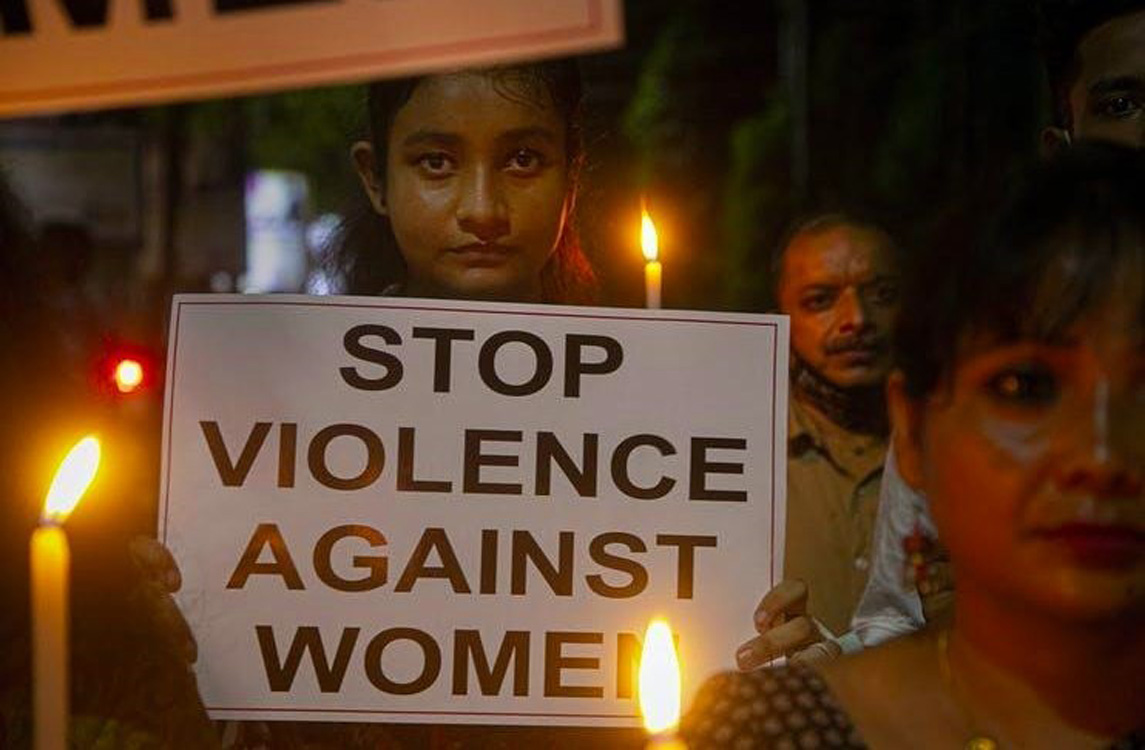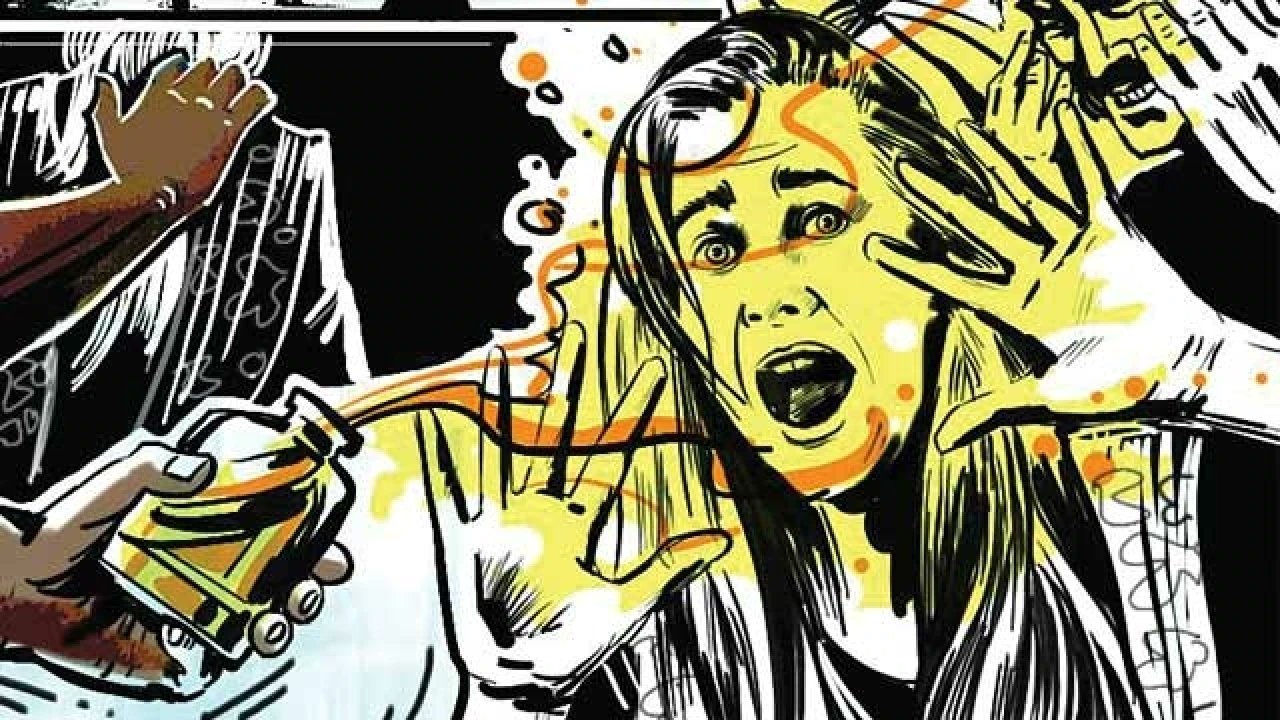
It is disturbing to see a generation of intolerant , entitled and privileged men who can’t bear rejection from women. We have to, one way or the other get a grip on our children and youth, else, we will continue to be shocked by such demonic crimes as Shraddha Walker murder case.
Time was when the men in our country bore rejection by a woman with grace and more often than not left quietly without making a scene. Of course the man would be hurt, angry and some would nurse a grudge against the girl or even spread rumours against her. But it was rare for someone to turn their romantic interest into psychotic rage and throw acid on her face, rape her or cut her up into many pieces. They took it on the chin like a man and those were the standards of gentlemanly behaviour that we grew up with.
So, it’s disturbing to see that the very same people seem to have brought up a generation of spoilt, intolerant, entitled and privileged men who can’t seem to take rejection from women they have romantic feelings for. Who have egos so huge that they overshadow any respect for womankind they might have and lead to uncontrolled violent behavior that can only be expected of a sociopath or worse psychopath.
Just look at the number of acid attacks on women these days. On August 2 this year, the Union Government in a written reply in the Lok Sabha revealed that 386 cases of acid attacks on women were registered between 2018-2022. Minister of State for Home Affairs Ajay Kumar Mishra told the Lok Sabha that a paltry 62 people were convicted during this period for the heinous crime which ruined the lives of 386 women and forced them to live in constant pain, heartbreak, seclusion, and led to loss of eyesight, education, jobs, all the joys of life and burdened them with heavy medical expenses.
Then, we have many horrifying cases where men who could not take rejection from a woman either killed her, raped her or got her gang-raped. Recently, a girl in Madhya Pradesh’s Khandwa district was stabbed multiple times by a man for allegedly turning down his marriage proposal. The incident came a week after a schoolgirl was set on fire by her stalker for turning down his proposal in Jharkhand’s Dumka. The man allegedly poured petrol on the 16-year-old girl from outside the window of her room when she was sleeping and set her on fire. She succumbed to her injuries later. There are numerous such cases across the country where girls have been killed by unrequited lovers.
Some men have even resorted to raping the girl or getting her gangraped and brutalized for spurning them. The most famous case that comes to mind is the chilling gangrape, brutalization and murder of a 19-year-old girl by three men in 2012 in Chhawla. The girl had rejected the proposal of one of the men. So, as revenge he and two of his friends abducted her, took her to a mustard field in Rewari district, Haryana and gangraped her. They brutalized her with car tools, tortured her with burning cigarettes and poured acid into her ear and eyes. She died as a result of these injuries and her parents have been running from pillar to post since then trying to bring the demons to justice.
But then, this Gender Based Violence (GBV) is not something that is limited to India. Disturbingly, it is a global phenomenon. According to UN chief Antonio Guterres, a woman or a girl is killed every 11 minutes by an intimate partner or a family member. Guterres has said that GBV is the most pervasive “human rights violation” in the world and called on governments to implement national action plans to tackle this scourge.
Guterres’ remarks come at a time when the country has been rocked by a series of shocking crimes that have come to light in the last few weeks. First and foremost was the Shraddha Walker murder case. Aftab Poonawala allegedly strangled Shradaha Walkar and sawed her body into 35 pieces, which he then dumped across Delhi over several days. According to media reports, Shradaha’s close friends have revealed that she wanted to break up with Aftab because he had “mentally tortured and physically assaulted her several times.” However, Shraddha had to continue being in the relationship since Aftab “emotionally blackmailed” her, and threatened to kill himself if she left him. In the end, he ended up killing her and the details of the case seem to have sparked off a series of copycat crimes!

A young man, Prince, strangulated Aradhana Prajapati, a resident of village Ishaqpur in Uttar Pradesh with the help of his cousin, Sarvesh. The duo chopped the body into pieces and threw them into a well on November 10. The police recovered the head 6 kms away from the well. The crime took place because Aradhana and Prince were in a relationship, but the girl was married off by her family to someone else in February this year. Prince was pressurizing Aradhana to break off her marriage but she refused to comply with his wishes, resulting in her murder and the gruesome dismembering of her body.
Then there was another equally shocking case in which Abhijit Patidar, a resident of Patna, killed his girlfriend Shilpa Jharia by slitting her throat and posting her last moments in a chilling video on her Instagram account, for allegedly being unfaithful to him. The video shows Abhijit hissing, “Bewafai Nahi Karne Ka (do not be unfaithful)”, and lifting a sheet to reveal the woman lying in bed, with her throat slit and taking her last breaths on the blood soaked bed.
These are just a few cases that have caught the media’s attention, but each day there are many more such cases that are reported but which don’t come into the limelight. Crimes against women have become so rampant now that it is only cases that are really macabre or shocking that grab the headlines.
So, the big question is, where did we go wrong? Parents of Millennials and Gen-Z have to ask themselves this question. How did a generation, that itself was by and large respectful and obedient towards its parents, elders and the opposite sex, bring up a generation of oversensitive, entitled, privileged, hot headed, cruel, sadistic, depraved men who can’t face rejection? Where did we go wrong? They say that the playground is the biggest teacher in life and most of life’s lessons are learnt there. Children learn teamwork on the playground, as well as facing rejection if they don’t get chosen for a game by their friends for a team sport. They face instant retribution for a wrong deed or rude word which teaches them that actions and words have consequences. They also learn to take teasing in their stride and how to respond and cope with it. They learn to deal with tough times, rejection and also learn trust, love, bonding and building lasting relationships and friendships. They learn to look out for each other, stand up for their friends and they experience success by winning a game and disappointment by losing one. More importantly they learn how to deal with the ups and downs of life on their own.
By being overprotective and ensuring monitored activities and armchair games instead of a healthy, freewheeling playtime with friends in the playground, by badgering schools into giving their children participation prizes or consolation prizes, by treating them like little princes and princesses of the world, by giving in to every whim and tantrum, by “clapping for baby” for the smallest achievement, by providing our children with a cloistered world, which is their oyster, we are guilty of unleashing on the world individuals who are ill-equipped to handle the big, bad real world. Also, by sparing the rod, we have spoilt the child because our children don’t grow up fearing the consequences of their actions.
Don’t get me wrong, I’m not saying beat you kids to pulp, but some sort of punishment and discipline is necessary to bring up a child who understands the concept that actions have consequences. Don’t wrap your children in cotton wool when they are young, else you will be bringing up dysfunctional adults who can’t cope with real life. For those belonging to the lower end of the wealth spectrum, I have this to say: don’t bring up your children beyond your means. Educate them, but don’t send them to expensive schools out of your reach where they feel small, or left out. Because then you will have an angry, malcontent on your hands, unable to fit into the two different worlds. Too many aspirations and little or no means to fulfill those aspirations will lead to heartburn, anger, resentment or worse, crime.
However, it would be unfair to lay all the blame at the door of the parents because we are living in times where technology plays a major role in our lives, and social media rather than real life social interactions define the lives of people. This has led to lack of communication among people. As a result, instead of resolving problematic issues through talks more and more people resort to verbal spats or violence.
As we are living in an aspirational society where everyone wants instant gratification, people are working hard to fulfill those goals; whether it is students aspiring to get good grades or people working in offices. So what we have is a stressed out society with too many worries, frustrations and a lowered threshold for tolerance and poor anger management.
Plus, we also are dealing with normalisation of aggression, extreme behaviour, sexual and physical violence through television, cinema, social media and OTT platforms. Clinical psychologists and behavioural science experts say that studies have shown that people who watch violent shows experience an increase in aggression and impressionable adolescents and young people become desensitized and immune to these things. According to experts at NIMHANS, violent films impact people in different ways. Some have a higher level of aggression and impulsivity and find a symbolic expression of their anger in such films. They may even watch such films to plan and prepare for a crime, like Aftab watched the show Dexter. Plus, piling up of stresses and issues, old grudges and an anti-social lifestyle can lead to a sudden burst of anger in some, causing an increase in crime.
Sadly, visiting a therapist is considered taboo in India and mental health issues are largely ignored. So, no recourse for anger management and lack of communication make a heady cocktail which can lead to crime in a fit of rage.
These are a lot of issues to handle, to rework and rectify and we as a society must do a lot of introspection. Law enforcement authorities must do a better job of getting the offenders convicted and the Government must bring out policies that help the youth better their lives. We have to, one way or the other, get a grip on our children and youth, else, we will continue to be shocked by such demonic crimes. We can’t let our society spiral out of control.













